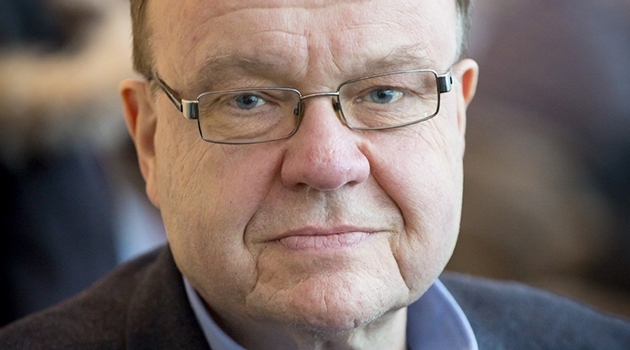“To understand the United States, we need to look at what is between New York and California”
Hello, there ... Dag Blanck, professor of North American Studies and frequently consulted expert commentator in Swedish media, who on Tuesday, 18 February, presented the open lecture titled “Our need for the United States”. In what ways do we actually need the United States in 2020?
“On several levels. As a superpower, the United States plays an important role in military and security policy, but its cultural influences also run deep. American film and television have long put their stamp on our collective consciousness, and with the advent of 24-hour journalism and its demands for a constantly updated stream, Swedish media is obtaining more and more news from the United States, which helps spark our involvement in relatively odd American phenomena as well.”
In talking about the United States, what primarily sparks the interest of Swedes?
“American politics and popular culture always generate great interest. But we are also sensitive to how the U.S. perceives Sweden. If American media make note of Swedish successes, it produces big headlines in our country. When Barack Obama visited Stockholm in 2013, our sense of affirmation was so great that any reservations were forgotten. Similarly, we are susceptible to American criticism. When Donald Trump called Prime Minister Stefan Löfven about the detention of American artist A$AP Rocky, I was overwhelmed by calls from Swedish journalists.”
… And how do Swedes perceive the United States?
“Many Swedes have relatively good knowledge of the U.S., but our picture is largely shaped by the U.S. we already recognise, with a disproportionate focus on New York and California. Most of the country actually consists of the states we look out over from the windows of planes at best but that still constitute important parts of a complex U.S.”
What would we discover if we landed down there?
“Above all, increased understanding of the many dimensions of the United States and things that are less known or difficult to understand for us, such as the continued existence of the death penalty, the negative view of governmental influence or why it is so difficult to influence gun laws. But there you will also find prominent universities, cultural institutions and a strong commitment to the important issues of our time, which we are not always aware of.”
Speaking of contemporary issues, what can we expect from the presidential election this autumn?
“The 2016 election received so much attention in the media that I became the most interviewed researcher of the year at Uppsala University, and this year will likely be no less hectic. Donald Trump is extremely skilled at creating interest around his public persona, and journalists go along with it. The media companies know that the high viewership numbers he attracts mean revenue because the advertisers’ money follows the viewers. How the election ends depends primarily on how independent voters in the middle of the political spectrum choose to vote.”
Forgetting Trump for a moment, what questions would you like journalists to ask?
“First, I would like to point out that I’m thankful that there are journalists who allow researchers to contribute science-based knowledge at a time when the news stream is dominated by catchy one-liners. Having said that, I am happy to answer more questions about my research area: Swedish-American relations and how our countries relate to each other from a historical perspective. This is something we touch on in our blog and podcast, Amerikaanalys (American Analysis).”
Facts
- Dag Blanck is a professor of North American Studies and director of the Swedish Institute of North American Studies (SINAS).
- Dag Blanck was one of the lecturers at Current Humanistic Research – four lectures arranged by the Royal Society of the Humanities in Uppsala in collaboration with Uppsala University on 18 February.
- Together with research colleagues Frida Stranne and Erik Åsard and journalist Karin Henriksson, he has the blog and podcast Amerikaanalys (American Analysis).

